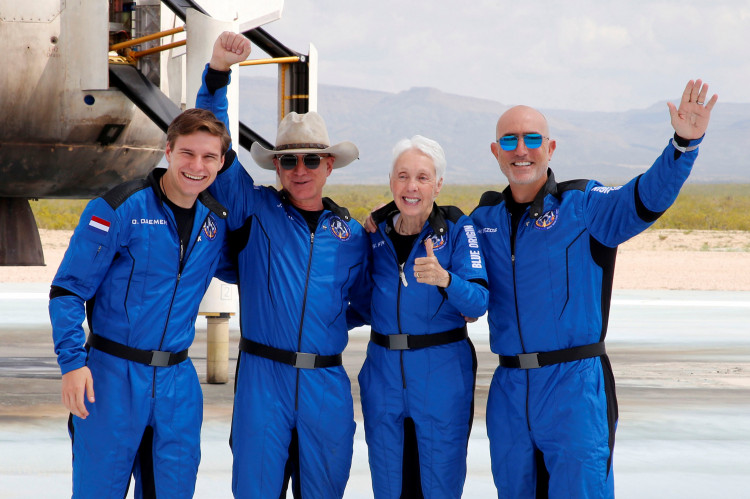Amazon founder Jeff Bezos successfully reached the edge of space aboard a rocket and capsule developed by Blue Origin, his private spaceflight company.
The trip was also the first crewed launch for Blue Origin's New Shepard rocket.
Bezos made history by participating in the first unpiloted suborbital flight with an all-civilian crew. They took off at 9:11 a.m. ET from a spot in the West Texas desert southeast of El Paso.
The Amazon chief was accompanied by a hand-picked team that included his brother, an 18-year-old from the Netherlands and an 82-year-old aviation pioneer from Texas - the youngest and oldest individuals to ever fly in space.
The New Shepard rocket accelerated toward space at three times the speed of sound after liftoff. The capsule parted at an altitude of 250,000 feet, transporting Bezos and his crew to the edge of space. The craft then descended through parachutes and landed in the Texas desert once more.
The entire flight lasted about 10 minutes.
"Best day ever," Bezos radioed to mission controllers after touching down.
Bezos' flight was a suborbital experience, which means he and his team did not enter orbit around Earth. Instead, the capsule reached the edge of space, at an altitude of more than 65 miles, when the passengers experienced four minutes of weightlessness.
Bezos' launch came just nine days after British entrepreneur Richard Branson flew to the edge of space on a rocket-powered vehicle created by his own space tourism company, Virgin Galactic.
Both flights, alongside rivalry between the competing billionaires, have caught global attention and generated interest and enthusiasm for the fledgling space tourism industry.
Bezos described the thrill of launching to the edge of space in a post-launch news conference.
"My expectations were high and they were dramatically exceeded," he said.
Blue Origin is building New Glenn, a gigantic rocket that will launch payloads and people into orbit from Cape Canaveral, Florida. With its proposed lunar lander Blue Moon, the company also wants to put astronauts back on the moon, and it is challenging NASA's sole contract award to SpaceX.






